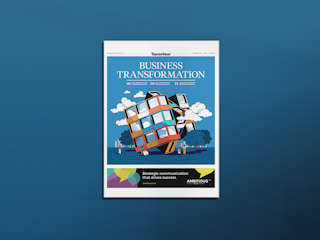Conventional webshop software is treading close to extinction with its niche focus on PCs. This approach is becoming outdated at a time when merchandisers are addressing shoppers via diverse routes such as apps, social media, chatbots, wearables and voice assistants.
Dirk Hörig, CEO of commercetools, believes, “no matter whether they use chatbots, social networks, wearables, IoT or voice devices – companies that want to be a step ahead of their competition should offer their customers personalized inspiration and purchase opportunities everywhere in the appropriate context. This can be done most successfully by using APIs and focusing on a company’s touchpoints. And these touchpoints can and should look different on a mobile phone than on the sofa at home in the evening – even if the offerings are coming from the same merchandiser.”
An open interface allows developers to quickly implement digital commerce solutions with a plethora of Internet- compatible devices. This is crucial in fast- moving times where a shared experience with technology was considered science fiction five to ten years ago.
Public Model
An API’s multifaceted nature can both create new business models and be
a powerful innovation driver for GAFA economy (Google, Amazon, Facebook and Apple). Each of these four influential commodities relies on public APIs to evolve into trillion-dollar enterprises, as marketing professor Scott Galloway shows in his book “The Four: The Hidden DNA of Amazon, Apple, Facebook, and Google.” They give developers all the tools they need to create customized applications and mashups. Currently, there are over 2 million apps in the Apple App Store and in Google’s Play Store. No other company in the world would have the resources to build up and maintain this number of products. By providing APIs they externalize the innovations, and every third-party developer becomes a multiplier. Companies like Uber or MyTaxi use the Google Maps API to put drivers in contact with passengers – a more cost-effective solution versus remapping entire cities.
Partner Model
This is when networking pays off. The partner-only model thrives off of handcrafted relationships with business partners. With this model, data exchange and monitoring is more controlled, making it easier to provide a tailored experience. Existing partners also benefit from this strategy as it grants them access to more enriched data. The API economy means that companies are no longer dependent on a single solution provider. Many companies in the API sector rely on a “network of different partners each having highly specialized skills that may be needed in the short term for specific transactions. These partners can be integrated automatically and in principle without a time delay and without transaction costs into one’s own added value,” according to the Gabler Dictionary of Economics.
APIs Investigate
Today, it is easier than ever to extract the data of your customers. When people interact with an application, algorithms store personal information about the user and their behavior. This type of data is a goldmine for improving services and products. Improving existing business saves money in the long-term.
Recognizing the value of such insights, some businesses are becoming data gluts. Businesses with compromised data can have detrimental effects on society. In 2018, Facebook was criticized for its massive data breach that impacted over 50 million accounts.
It is therefore also no surprise that regulations such as GDPR (Europe) and the Chinese Cybersecurity Law limit the ways companies can obtain, store and use consumer data.
APIs Can be Used to Forecast Users’ Consumption Patterns
Acquiring data has many purposes, but the main reason companies are flocking to this source is the competitive edge of consumer tastes and interests. This big data has strategic value for actionable information.
Airbnb uses predictive algorithms to advertise their most attractive listings. What the user views is based on previous browsing behavior and image quality from the owners. Listings with the best images have priority over standard apartments. Users are often more attracted to better picture quality and amenities provided by the host.
Taking Advantage of New Business Opportunities Thanks to the APIs
Taking all these aspects of APIs into account, they can have the ability to develop new business opportunities. Businesses now have enough insight to venture out into more ambitious avenues. With such data and testing, expansion is achievable.
Service orientation from a seller side will remain high. This, of course, means that every company needs to get rid of commerce silos and establish a ubiquitous experience for their customers – on a platform that allows fast and frequent deliveries for all channels.







